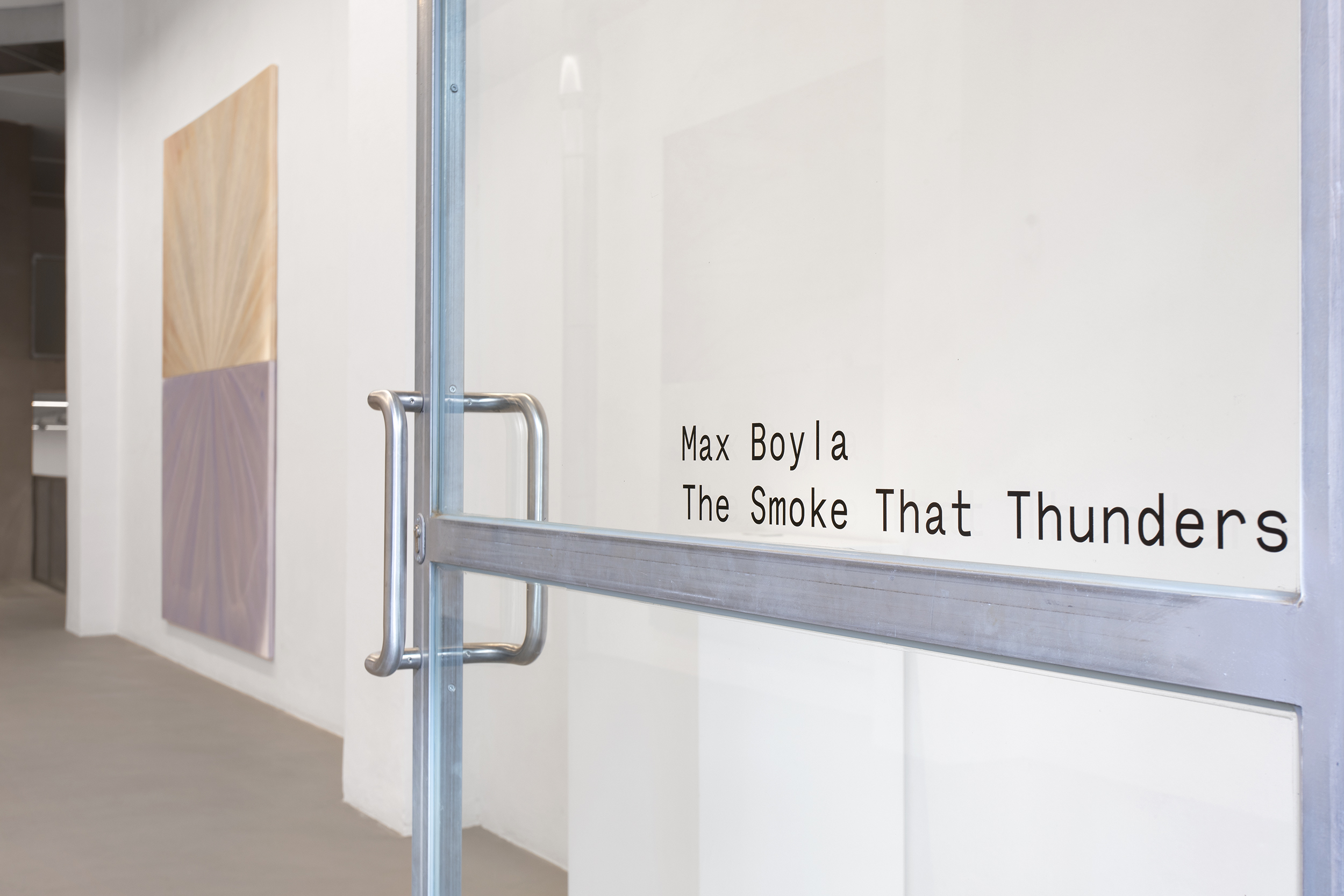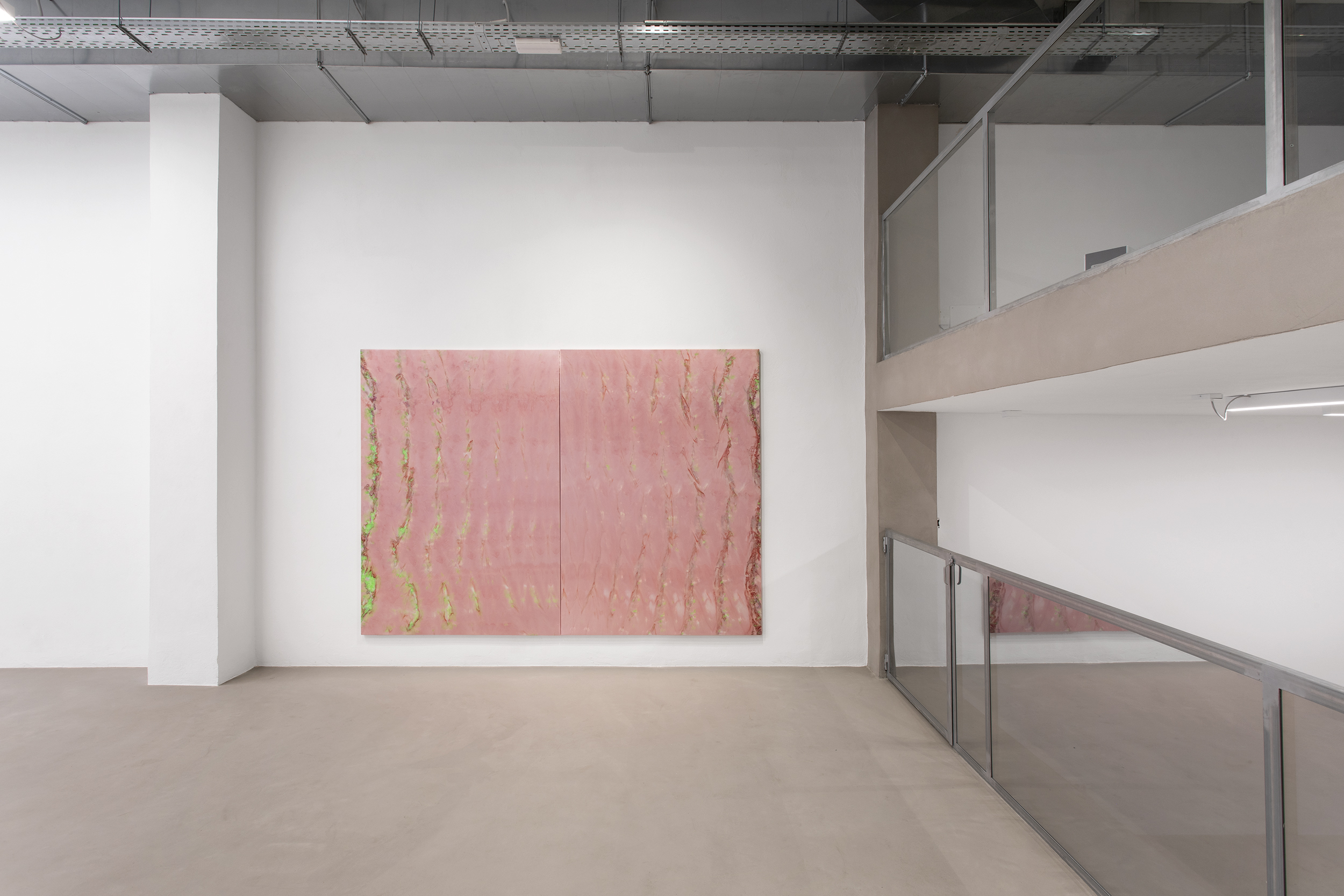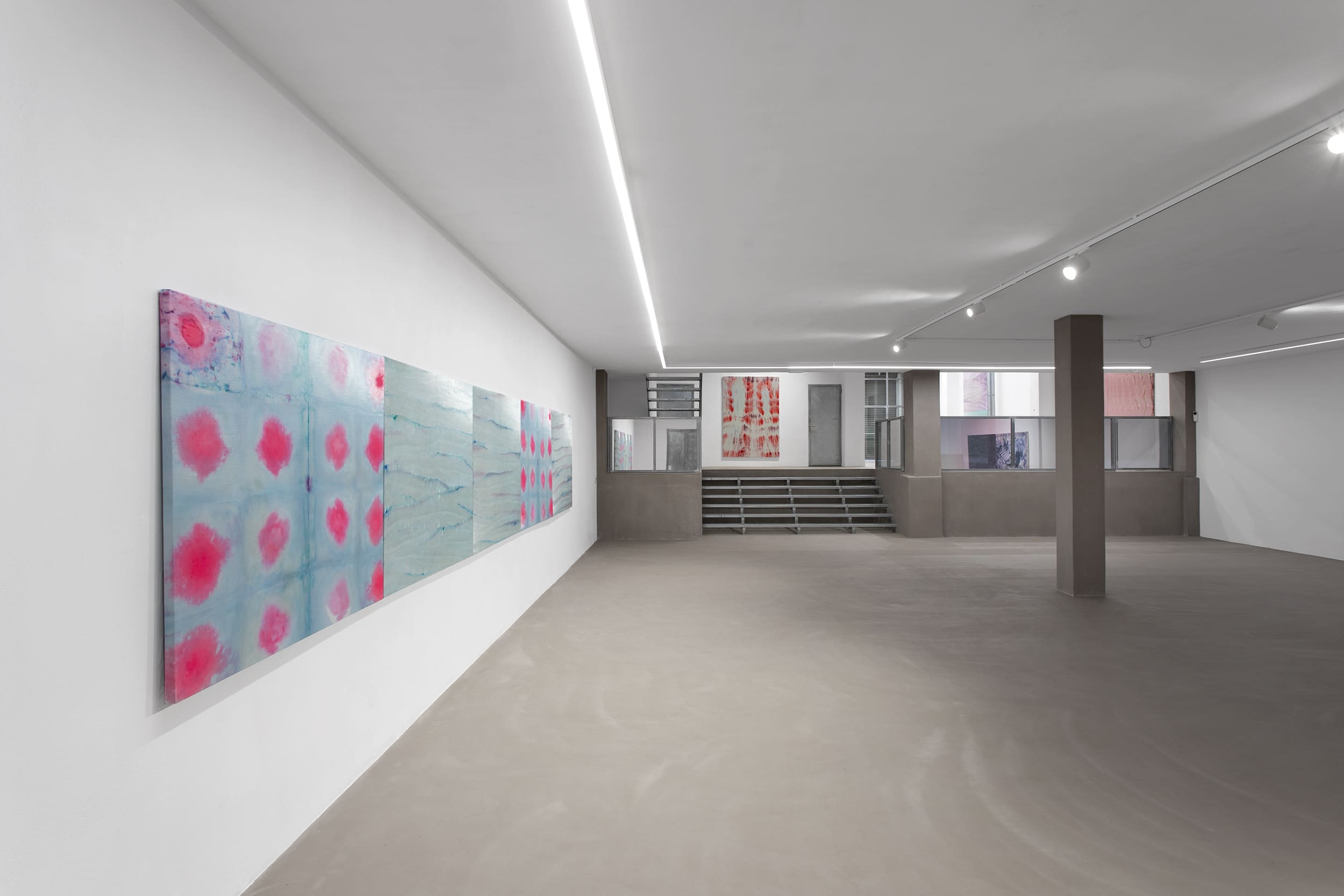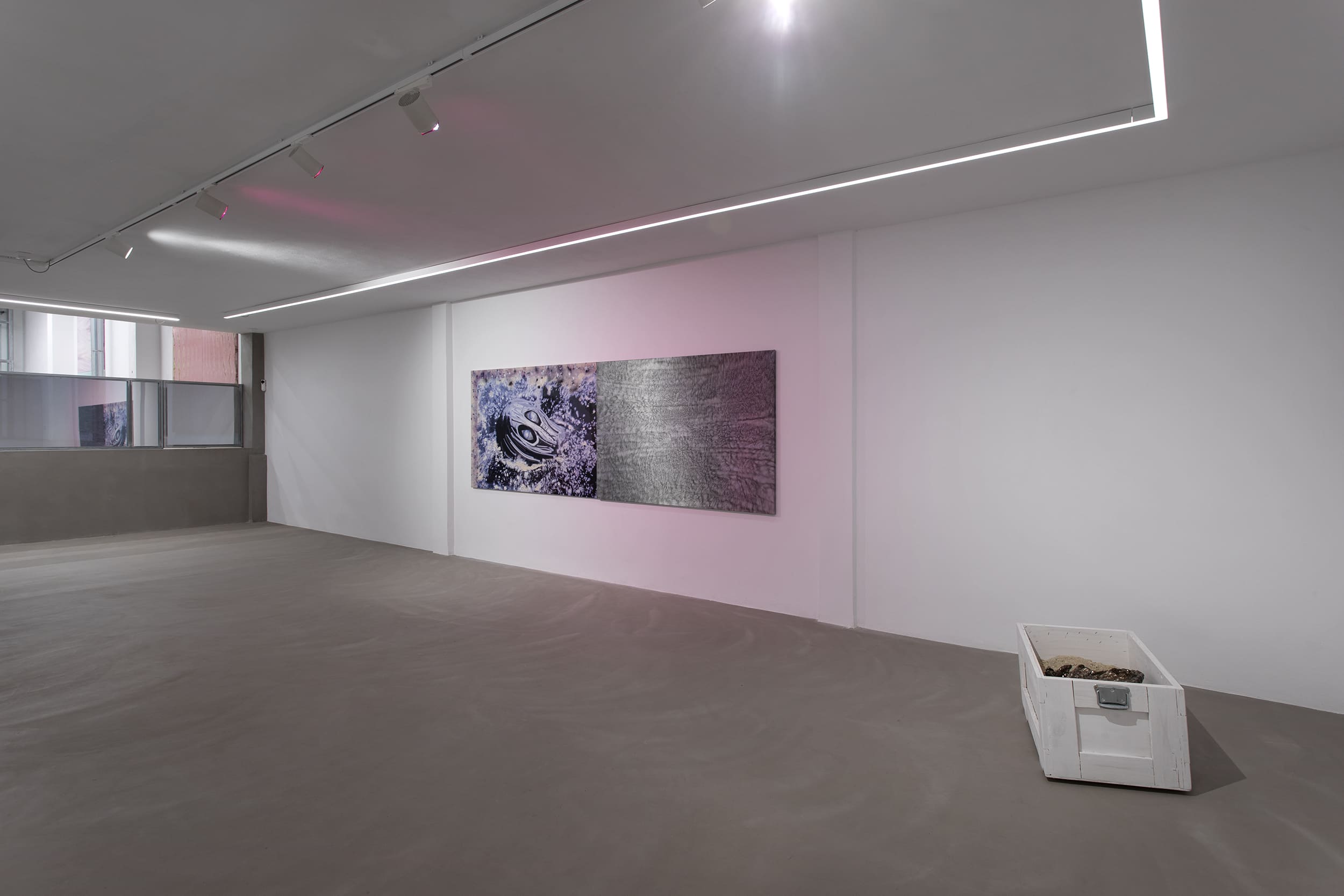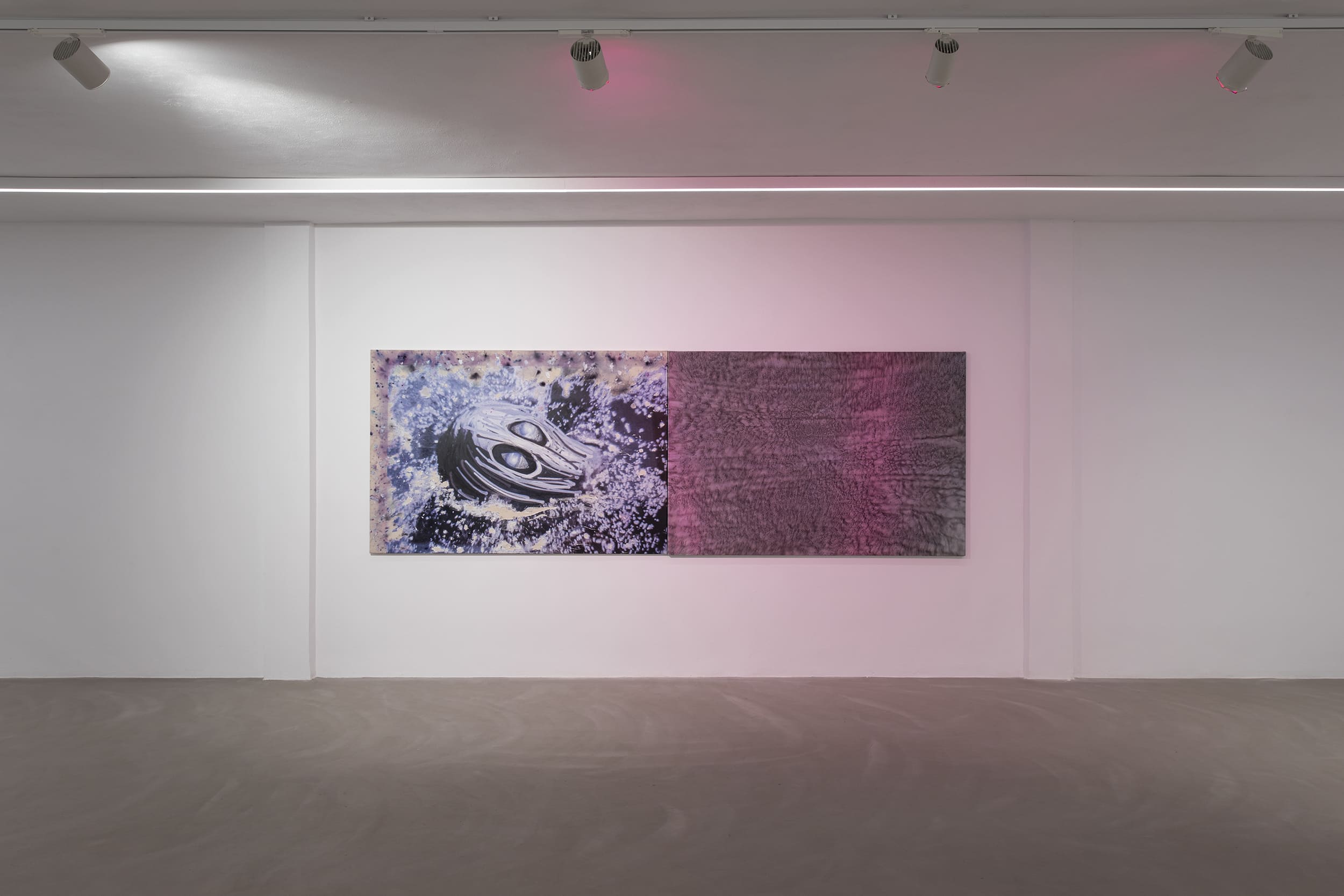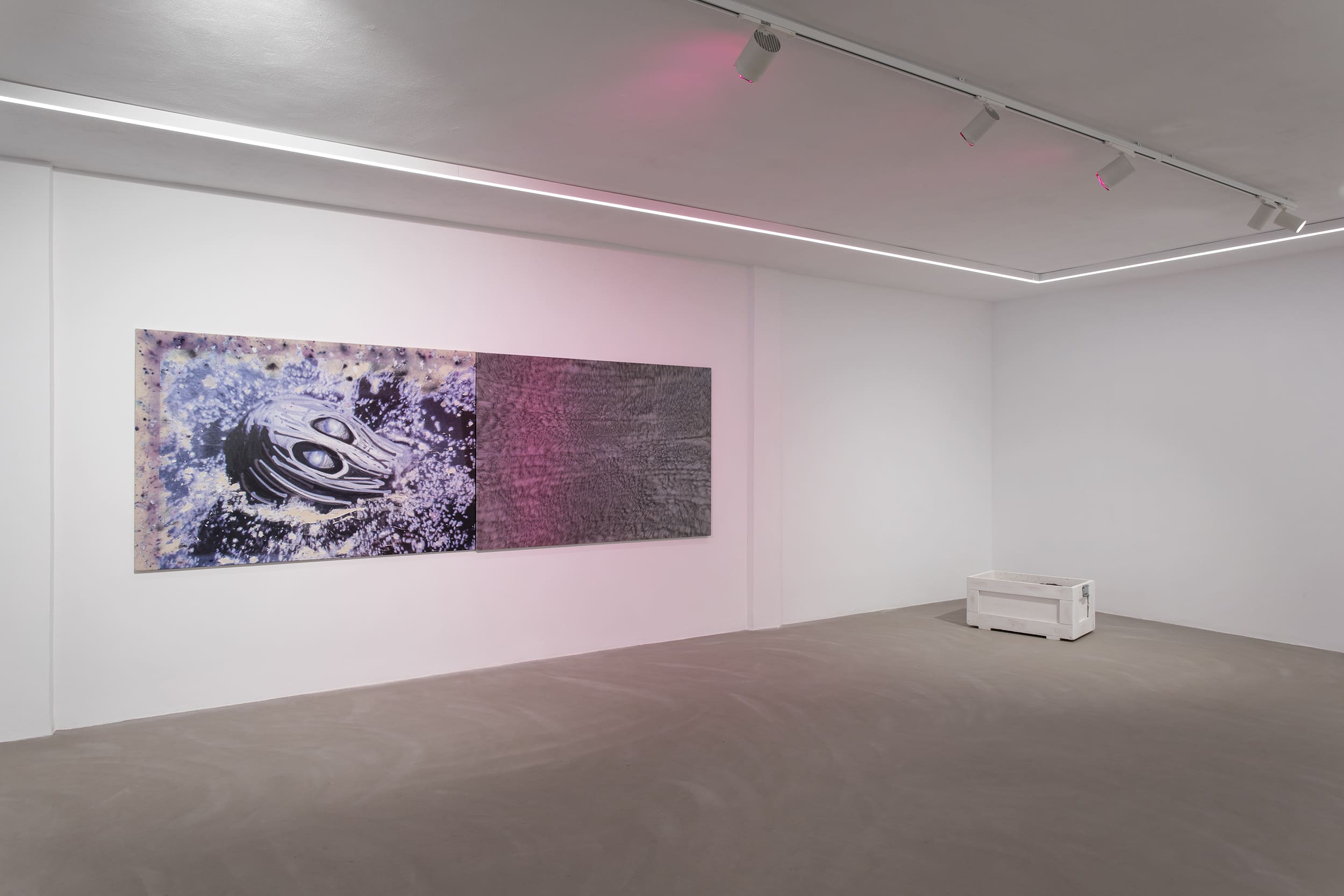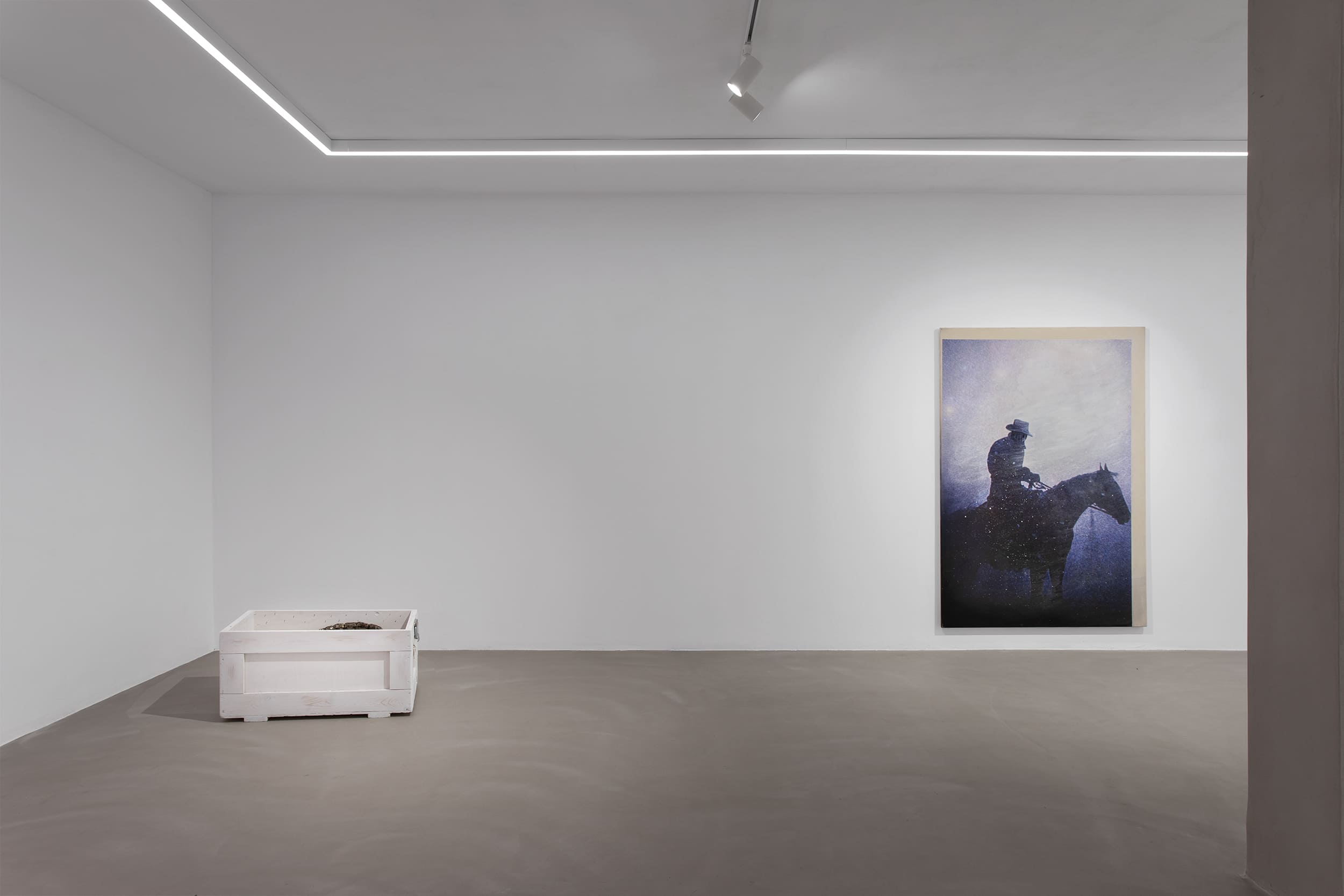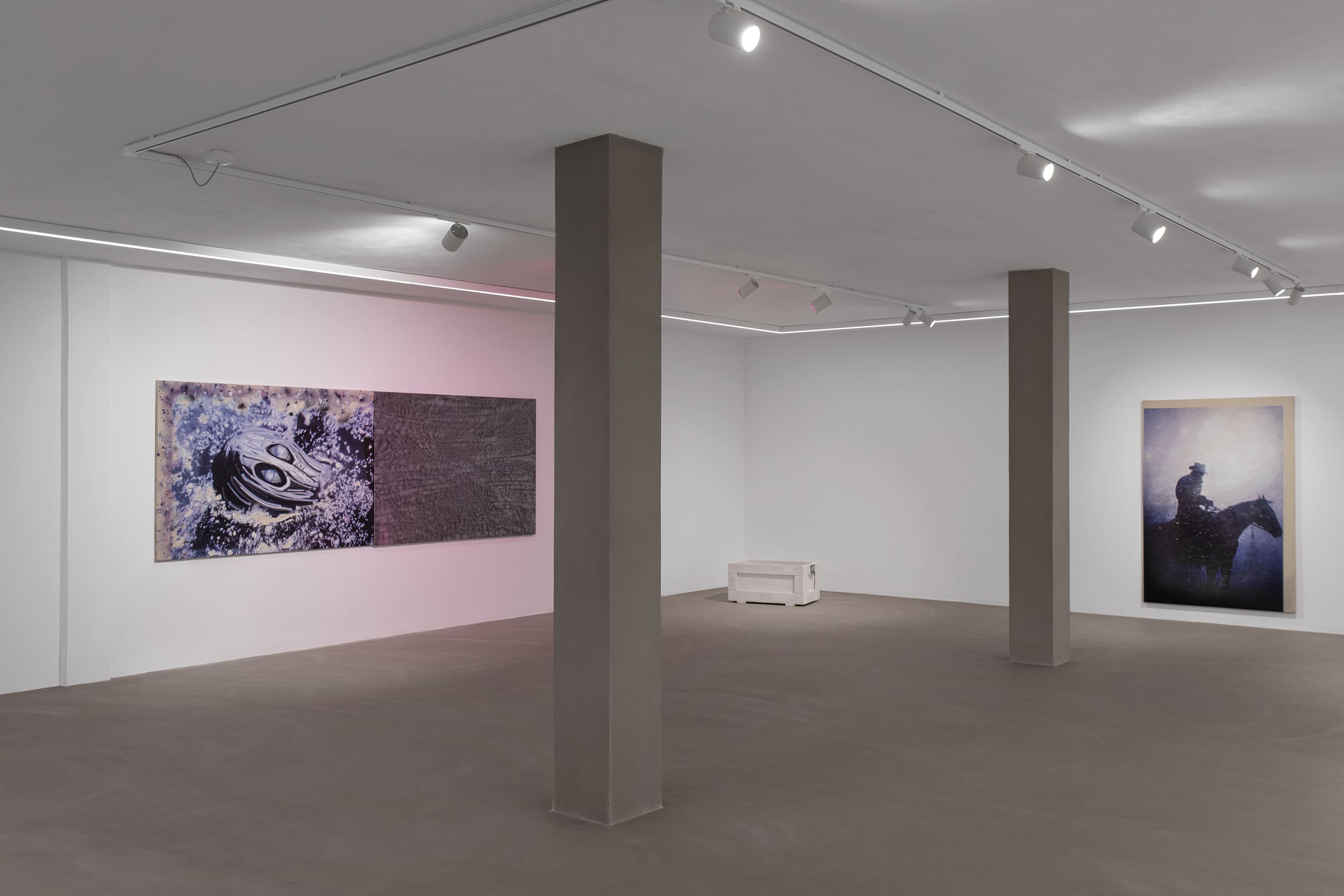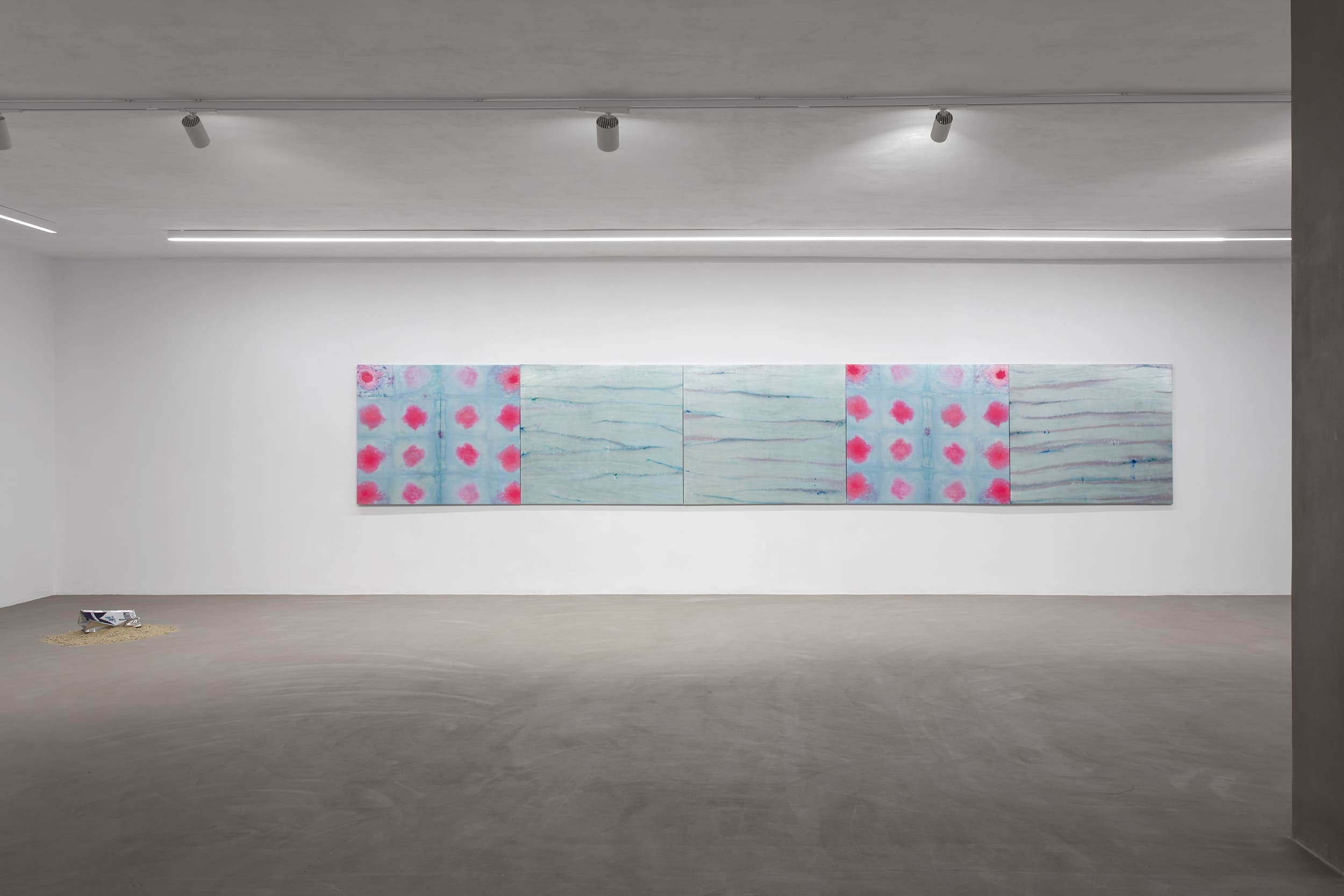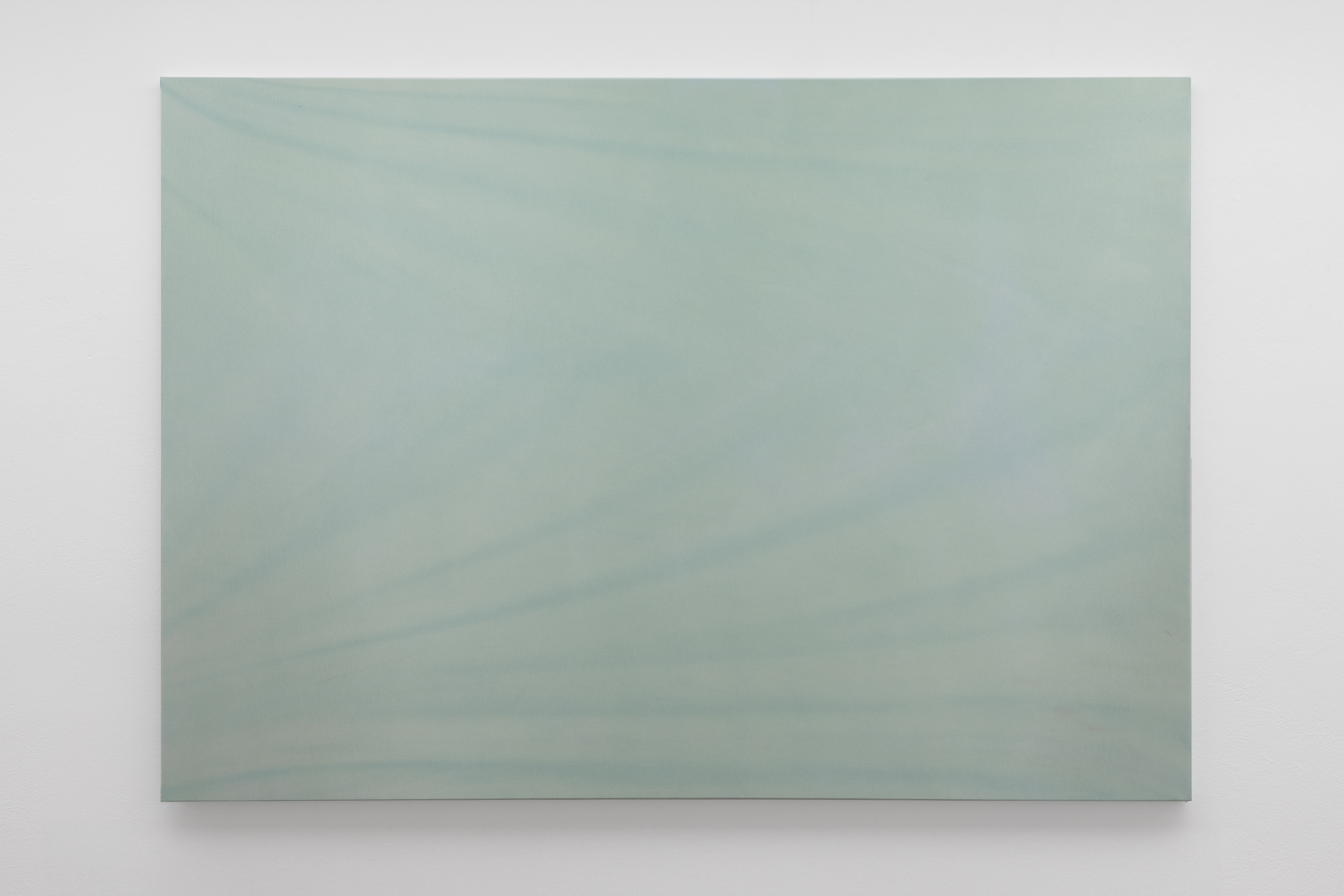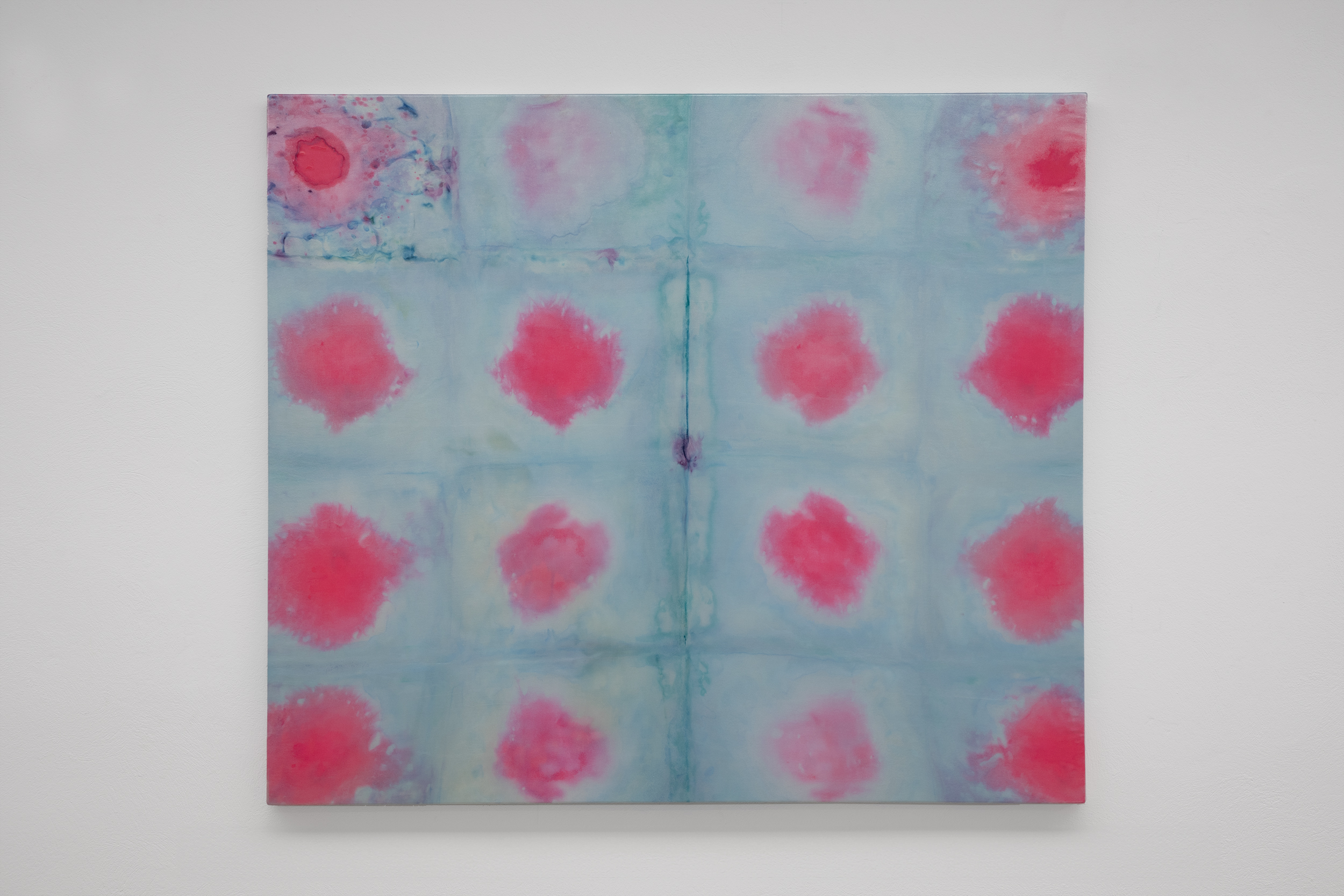Max Boyla (b. 1991, Edinburgh) is a Scottish artist based in London who graduated from the Royal Academy Schools in 2023. Holding to a tradition that sees painting as an illusion, Boyla’s work can exist in a perpetual limbo: a place where the limited and real world mingles with the eternal and fictional.
His satin surfaces, a synthetic material derived as a petroleum byproduct, create tension, offering a lustre towards abstract cosmologies. Shorn of all sense of time and place, fantasies of the infinite collide with a questioning of a contemporary state of disillusionment.
Highlights of recent exhibitions include “An Uncommon Thread”, Hauser & Wirth, Somerset (2025, group), “New Contemporaries”, Institute of Contemporary Arts, London, UK (2025, group), “New Contemporaries”, Karst, Plymouth, UK (2024, group), ‘Crying like a fire in the sun”, Workplace, London (2024, solo); ‘Slow Motion’, Des Bains, London (2023, duo); ‘Slivers in the Void’, Mamoth, London (2023, group); ‘Add More Fuel To Your Life’, Sim Smith, London (2023, solo); ‘Inside Out’, The Artist Room, London (2022, group).
Request more info at info@tubecontemporary.com
The Smoke That Thunders draws inspiration from genres including film, documentary, and literature, to convey our uncertain and estranged moment in time, that is consequential of unethical, self-serving consumer capitalism, corporate culture as well as neo-colonial projects run by global and multinational corporations, that spawn global ecological and environmental catastrophes through continuous deception and disinformation. Whether referencing the duplicitous multinational oil company Shell, its widespread exploitation of natural resources and its causal impact on affected regions and its indigenous peoples or questioning immoral and unethical branding strategies concerning the infamous Marlboro Man campaign, Boyla dives into the deceptive two-faced nature of global corporations and their campaigns. The combined outcome manifests itself as an alternative experience to reality: An un-worlding in which we renegotiate our manufactured perceptions of reality.
Upon entering, large abstract canvases consisting of artificial materials such as synthetic satin made in part of petroleum, dyes, inks and bleach, hint towards underlying themes to come. Akin to a relic, a neon-splattered, larger-than-life ceramic shell with ghostly hollow eyes lays in a discarded wooden chest. Mirroring the symbol of Shell Oil, the mask-like qualities of Unmasked (2023) subtly hint at the corporation’s double-dealing tenors. Reflecting off mirrored glass railings, we encounter multiple spliced perceptions of the shell, in turn alluding to a blurring of lines between reality and illusion, truth and fiction.
Across the gallery, self-assembled renders of larger-than-life imprinted steel Marlboro cigarette packs lay bare the absurdist dimensions of a real-life cardboard advertising model found on e-bay, that was advertised at JFK airport in the 1960s. In the bottom half of the exhibition space, Rider on the storm (2021) encapsulates an eerie, faceless cowboy on a horse, referencing one of the most successful advertising campaigns in the world and the longest in history – the Marlboro Man – which launched in 1954 and ran shy of 50 years. Despite detrimental rising health concerns, Philip Morris successfully leveraged the Marlboro Man campaign, demonstrating both the effectiveness of their strategy and the tobacco industry’s powerful ability to use mass marketing to influence and manipulate public perception.
Throughout The Smoke That Thunders, Boyla employs a multimedia approach—including sculpture, film, abstract paintings, and site-specific interventions—to investigate the dual nature of “masking” caused by ammoral global corporations, in which detrimental false narratives inflicted upon consumers or societies overshadow the catastrophic realities that simmer beyond the surface. In turn, such a discrepancy causes a distortion of realism within individuals and democracies, which, Linguist and Intellectual Professor Noam Chomsky coins “cognitive estrangement”: The presentation of fictions as facts, that disillusions society and alters our initial perceptions of reality.
Boyla’s practice urges us to shine a light on the hyperreal, liminal and uncanny effects felt through manufactured consent; where the media, global corporations, and public figures often work in tangent to preserve and empower self-serving capital at the cost of the innocent.
Featured Works
Available Works
